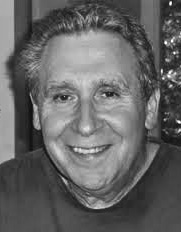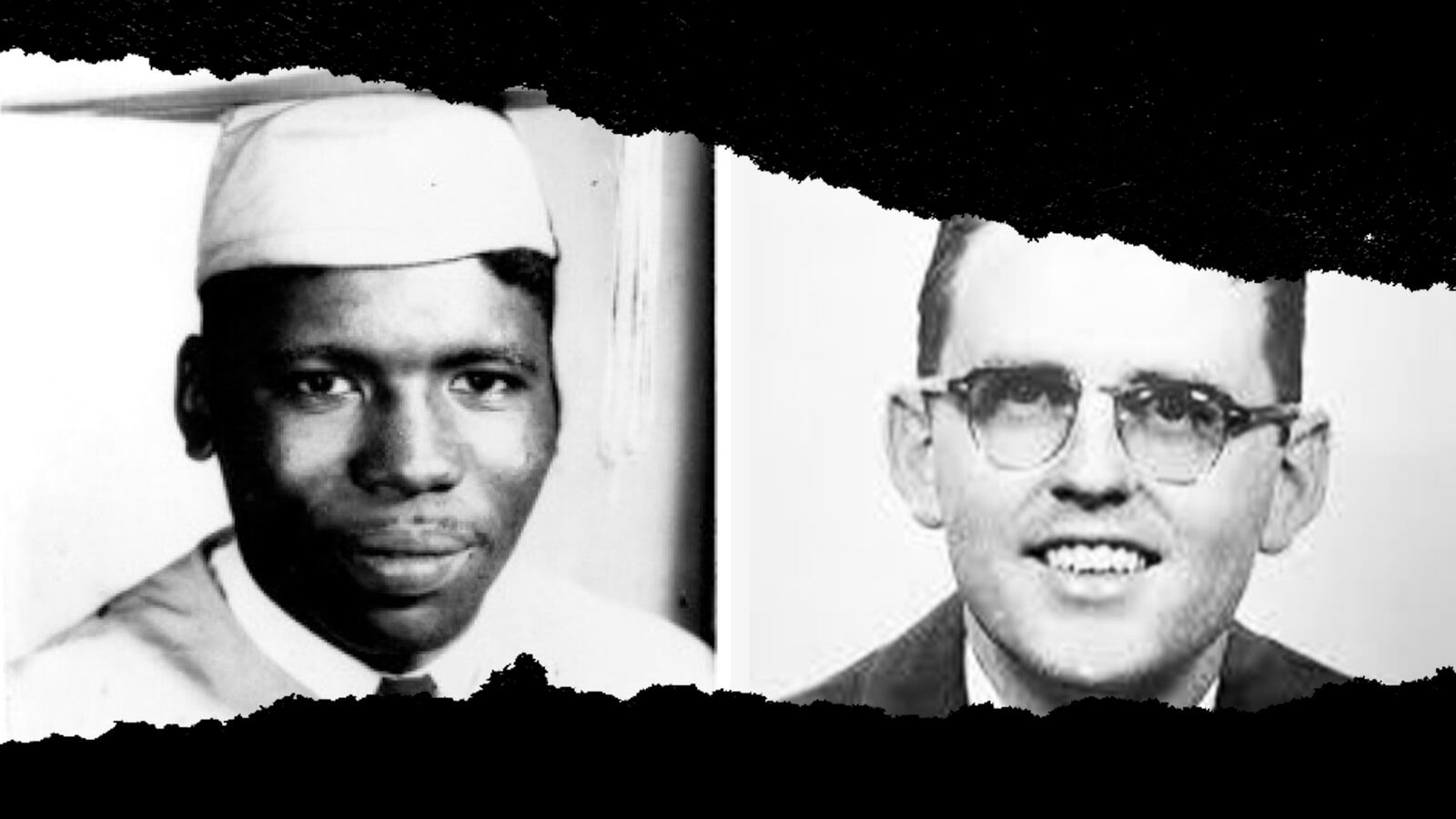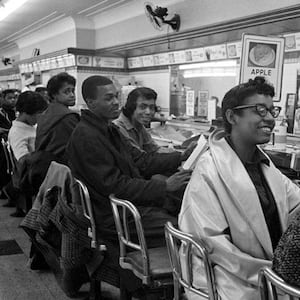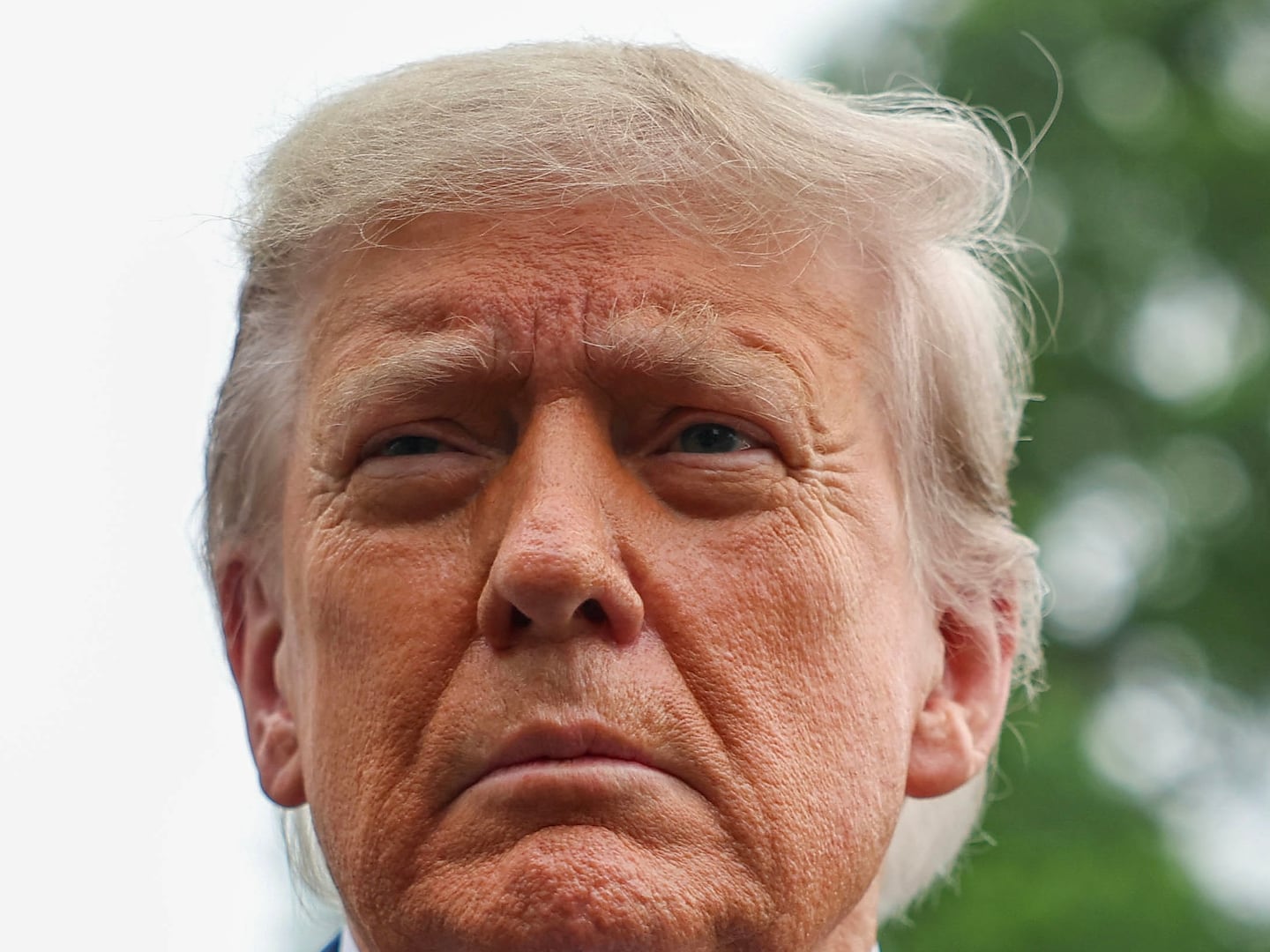Moments after Derek Chauvin was convicted in Minneapolis of murdering George Floyd, the Floyd family’s attorney Ben Crump reflected on the implications of the verdict: “Let’s pause for a moment to proclaim this historical moment—not just for the legacy of George Floyd but for the legacy of America. The legacy of trying to make America for all Americans.”
After a pause of less than 24 hours, U.S. Attorney General Merrick Garland announced a Justice Department investigation into the practices of the Minneapolis police department. At the same time, civil rights activists and Democrats called for swift passage of the George Floyd Justice in Policing Act, a bill pending in the Senate since passage by the House on March 3.
Just as Floyd’s death has hastened the push for governmental scrutiny of police practices and federal legislation intended to create a better America for all Americans, so, too, did the deaths of two lesser-known foot soldiers of the civil rights movement over 55 years ago.
According to the late congressman John Lewis, “It was the killing of Jimmie Lee Jackson that provoked the march from Selma to Montgomery. It was his death and his blood that gave us the Voting Rights Act of 1965.”
And as the historian and journalist Gustav Niebuhr has observed, “Dr. King's murder was the most momentous among those of the dozens who died in the cause of civil rights for African Americans. While all could be said worthy of remembrance, one in particular—the Rev. James Reeb—may be worth recalling now, because the events surrounding his death helped hasten passage of the federal Voting Rights Act, a crowning achievement of the civil rights movement.”
At first glance Jimmie Lee Jackson and James Reeb appear to have been almost polar opposites. Jackson was an unmarried 26-year-old Black man who lived in a ramshackle home with no running water outside Marion, a town of 3,800 people in western Alabama. He had a high school education and earned six dollars a day chopping pulpwood. Reeb was a 38-year-old white man who had grown up in Wyoming and earned a divinity degree from the Princeton Theological Seminary. Married and a father of four children, he had taken leave from his position of associate minister at a Unitarian church in Washington, D.C., in 1964 to join the urban ministry movement and become a community organizer for the American Friends (Quakers) in Boston’s tough Roxbury section.
The two men, however, had more in common than first met the eye. Like Rev. Reeb, Jackson was a spiritual being, the youngest deacon in the history of his Baptist church near Marion. And, like Reeb, he was a family man. After moving north in search of a better life, he had returned to Marion to help care for his aging grandfather and provide for his mother and younger sister after his father was killed in a car crash.
Each man was also committed to ending racial discrimination and improving the lot of African Americans. Reeb was fighting for better housing, working, and recreational opportunities for Blacks in Boston. Jackson was active in the voter registration drive that Dr. King and the Southern Christian Leadership Conference (SCLC) had brought to Alabama’s “Black Belt” region in January 1965. At the time Blacks in Alabama and throughout the South were systematically denied the right to vote by whites fearful of losing the power that comes with elected office. Jimmie Lee had tried and failed to register four times.
Most importantly, both Jimmie Lee and James were killed by hostile whites in Alabama after marching for voting rights. Some would argue that their deaths, though certainly not desired by civil rights leaders, were inevitable and perhaps even necessary to further the cause. The confrontational brand of nonviolence in use in the movement counted on tragic, galvanizing incidents—in this case the martyrdom of Jackson and Reeb. (Some have called Floyd a “martyr,” as well. But as Ernest Owens has noted in these pages, Floyd was a murder victim, not a movement foot soldier/martyr.)
Jackson died at the hands of Alabama state trooper James Bonard Fowler after police attacked peaceful protesters in Marion on February 18, 1965. Following his death, an elderly Black woman named Lucy Foster proposed they carry his casket from Marion to the state capital Montgomery and lay it on the doorstep of Alabama’s rabid segregationist governor, George Wallace. Deeming an 80-mile journey with a coffin too long, the SCLC’s Rev. James Bevel suggested a 50-mile march in Jackson’s honor from Selma to Montgomery. This was the genesis of the now infamous march on March 7 that was violently aborted by Alabama state troopers wielding billy clubs and bullwhips—Bloody Sunday.
The Bloody Sunday police action led Dr. King to call for northern clergy to join in a second march in Selma two days later. Reeb answered this call, catching a last-minute plane from Boston despite his fearful wife’s reservations. He never returned home.
On March 9, racist white thugs attacked him and two other white Unitarian ministers as they walked to a meeting Dr. King was to lead at a Selma church. One of the assailants swung a club and hit Reeb squarely in the temple. The minister soon lapsed into unconsciousness and died two days later, his wife at his side.

"Rev. James Reeb (left) marching with Rev. Martin Luther King"
HandoutThe brutal murder of James Reeb led to large protests from coast to coast and moved President Lyndon Johnson to take the dramatic step of addressing Congress and the nation. On March 15, just four days after Reeb’s death, the president called for passage of yet-to-be-introduced voting rights legislation.
<p>He began his address by saying, “I speak tonight for the dignity of man and the destiny of democracy. I urge every member of both parties, Americans of all religions and of all colors, from every section of this country, to join me in that cause.“At times history and fate meet at a single time in a single place to shape a turning point in man’s unending search for freedom. So it was at Lexington and Concord. So it was a century ago at Appomattox. So it was last week in Selma, Alabama. There, long-suffering men and women peacefully protested the denial of their rights as Americans. Many were brutally assaulted. One good man, a man of God, was killed.”</p>
<p>“At times history and fate meet at a single time in a single place to shape a turning point in man’s unending search for freedom. So it was at Lexington and Concord. So it was a century ago at Appomattox. So it was last week in Selma, Alabama. There, long-suffering men and women peacefully protested the denial of their rights as Americans. Many were brutally assaulted. One good man, a man of God, was killed.”</p>
That “good man” was James Reeb.
The president concluded his remarks by saying, “All Americans just must have the right to vote. And we are going to give them that right. All Americans must have the privileges of citizenship regardless of race. And they are going to have those privileges of citizenship regardless of race.”
Less than five months later, Congress passed the landmark Voting Rights Act by an overwhelming margin.
Hidden beneath conventional history, there is often a story in which the characters are little known, but tremendously important. Without the deaths of Jackson and Reeb, the attention of the nation would not have been captured, the will of the president and the Congress would not have been galvanized, and passage of one of our nation’s most important laws would not have been as swift.
One might say that these two men were accidental martyrs, but each had consciously made the commitment to fight for a cause and put himself in a position he knew was fraught with danger. There was nothing accidental about the choices made by these foot soldiers of the movement.
Passage of the Voting Rights Act provided a certain amount of justice for African Americans. Registration jumped immediately. Soon Blacks were winning offices long held by Whites.
Justice for Jimmie Lee and James was harder to come by. In December 1965, three white men went on trial in Selma for the murder of Reeb. Under oath each of Reeb’s minister-companions unequivocally identified one of the defendants as an attacker and testified that they believed the other two defendants also participated in the murder. Other witnesses placed all three men near the scene of the crime at the time of the attack. Several friends of the accused attempted to provide alibis but contradicted one another.

"Mourners gather near the body of Jimmie Lee Jackson killed during rioting which broke out during a civil rights protest in Marion, Alabama."
Bettmann/GettyBefore the trial, the FBI identified the district attorney as an “ardent segregationist” who could not be counted on to aggressively pursue a guilty verdict. Unfortunately, the Bureau was right. The all-white, all-male jury—some of whom were friends of the defendants and should never have been impaneled—took only 97 minutes to acquit all three of the accused.
Southern justice looked anything but just. The key alibi witness was the brother of one of the jurors. One eyewitness refused to return to Alabama from Mississippi because he was afraid the Ku Klux Klan would kill him. Among the defense’s audacious arguments was that many in the movement wanted a martyr—in particular a white martyr—and so Reeb’s two fellow ministers and others conspired to let him die.
During the deliberations, Selma’s combative segregationist sheriff Jim Clark, an outspoken critic of “outside agitators,” inappropriately entered the jury room. He wore a button reading NEVER—his personal timetable for extending voting rights to Blacks. Clark stayed with the jurors for five minutes. Half an hour later, they announced they had reached a verdict.
While the Reeb case, at least, went to trial, the Jackson case did not. Before the end of 1965, separate state and federal grand juries refused to indict Trooper Fowler despite his admission that he had fired the shot that struck Jackson and eyewitness testimony that contradicted Fowler’s assertion that he had acted in self-defense.
The story, however, does not end there. In 2005 a newspaper in Alabama, the Anniston Star, featured a “forty years later” story about Jackson’s death. In his first public interview about the shooting, Fowler again claimed that he had shot Jackson in self-defense. He admitted that he had shot and killed another Black man a year later in the line of duty and explained that, too, had been in self-defense.
The retired trooper also praised segregation and spoke disparagingly of the Marion protesters and Dr. King: “I'm on the side of J. Edgar Hoover. I think (Martin Luther King) was a con artist. I don't think he's got a snowball's chance in hell of getting into heaven. No more chance than I do. His goal was to screw and fuck over every white woman that he could."
The interview outraged many Alabamans. Black legislators in the state called for the just-elected District Attorney Michael Jackson (an African American who is no relation to Jimmie Lee) to revisit the case. Despite pressure from many in the area’s white community who did not want to reopen an old wound, Jackson set about the difficult task of seeing if there was enough evidence to indict Fowler.
The DA’s first move was to stand on a well-traveled street corner in Marion and ask every older African American who passed by if they had witnessed the shooting in 1965. Many witnesses were long dead or had moved away, but Jackson found that many were still in town.
Supplementing their current testimony with material from the FBI files of 1965, the DA painstakingly put a case together. In 2007, a grand jury indicted Fowler for murder, just as grand juries had done in other civil rights cold cases, including the 1964 shooting of Medgar Evers in Mississippi and the 1963 bombing of the 16th Street Baptist Church in Birmingham that killed four young Black girls. In 2010, after numerous dramatic battles played out in the courtroom and the media, Fowler pleaded guilty to manslaughter and apologized to the Jackson family, although he continued to insist he had acted in self-defense.

"A hearse carrying the body of Jimmie Lee Jackson drives slowly in rain with an estimated 700 people, mostly African American, following the cemetery where Jackson is to be lain. Jackson was shot in Marion February 18, during a night demonstration and died in Selma Hospital. Two funerals were held for the civil rights protester with Dr. Martin Luther King giving the eulogy."
Bettmann/GettyThe irony is not lost that the Black state legislators and district attorney responsible for reviving the Jimmie Lee Jackson case most likely would not have been elected to their offices without the Voting Rights Act of 1965. Southern justice is no longer what it once was.
But neither is the act.
On Feb. 27, 2013, 48 years and one day after the death of Jimmie Lee Jackson, the U.S. Supreme Court heard oral arguments in the case of Shelby County v. Holder. Four months later the court published its 5-4 decision. As the Boston Globe reported:
"The Supreme Court on Tuesday invalidated a key provision in the 1965 Voting Rights Act that is intended to guard against discrimination at the ballot box, raising concerns among civil rights activists that the decision will spawn new laws making it harder for minorities to vote….
"The Voting Rights Act has a storied history. One trigger for its passage was the March 1965 murder of James Reeb, a Dorchester minister and civil rights activist, on a sidewalk in Selma, Ala. The killing of Reeb, along with two other activists, Jimmie Lee Jackson and Viola Liuzzo, was widely credited with moving Congress and President Lyndon Johnson to ban discriminatory voting practices and ending the disenfranchisement of Black voters."
Within weeks of the decision, most of the nine states previously covered by the Voting Rights Act had passed new laws restricting registration. In North Carolina, for example, legislation eliminated same-day voter registration, shortened the early voting period by seven days, and specified that ballots cast at the wrong polling station would be thrown out. Before Shelby v. Holder, Alabama had accepted non-photo identification, such as utility bills and Social Security cards; now voters must present photo IDs.
After the Shelby decision, Walter Dobyne, who as an 18-year-old was arrested in Marion in February 1965 for participating in sit-ins and marching for voting rights, offered his own opinion: “The Supreme Court was full of shit. They weren’t brought up in Alabama or Mississippi. They didn’t know how white folks treated Blacks and what they did to prevent Blacks from voting. If they knew the story and what Blacks had to do to get the right to vote, they wouldn’t of did it.”
John Lewis called Shelby “a dagger to the heart.” Today, the John Lewis Voting Rights Advancement Act, already passed by the U.S. House of Representatives, awaits Senate action. So, too, does the George Floyd Justice in Policing Act. Passage of these bills will further secure the legacies of Lewis and Floyd, just as the Voting Rights Act of 1965 secured the legacies of Jimmie Lee Jackson and James Reeb—even if their names were not attached. The question now is what will the legacy of the U.S. Senate be, particularly on the Republican side of the aisle.
Steve Fiffer is the co-author with Adar Cohen of the nonfiction book Jimmie Lee and James. More recently he collaborated with the late C.T. Vivian on the memoir It’s in the Action: Memories of a Nonviolent Warrior.







